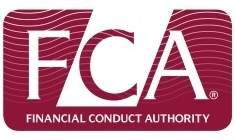
The Financial Conduct Authority (FCA) is considering bringing some of the protections typically used in the payday lending sector to other high-cost credit products, including motor finance, according to a call for input the regulator has released.
Although the FCA noted the main types of high cost credit products tended to be short term loans, such as payday downs, as well as home-collected credit, catalogue credit, some rent-to-own, pawn-broking, guarantor and logbook loans, it also highlighted motor finance as an area that sometimes fell into the category.
It said the review was to look across high-cost products as a whole in order to build a full picture of how these are used, whether they cause detriment and, if so, to which consumers.
The regulator said doing so would enable it to consider whether further policy interventions are needed, and whether these should be more consistent across the market than they are at present.
It will also consider the potential consequences of taking action on specific high-cost credit products, noting specifically firm behaviour, consumer welfare and access to credit.
Customers of high-cost credit usually share certain characteristics, including higher-than-average incidence of vulnerability, and in many cases consumers are likely to be using several high-cost products, or switching between them for emergency borrowing and juggling repayment, the FCA said, so it suggested different levels of protection may not be fair or transparent.
How well do you really know your competitors?
Access the most comprehensive Company Profiles on the market, powered by GlobalData. Save hours of research. Gain competitive edge.

Thank you!
Your download email will arrive shortly
Not ready to buy yet? Download a free sample
We are confident about the unique quality of our Company Profiles. However, we want you to make the most beneficial decision for your business, so we offer a free sample that you can download by submitting the below form
By GlobalDataDespite this, the FCA admitted that the nature of different high-cost products varied, and that the risk of detriment caused by different products could also vary, and that different high-cost products may not be loosely substitutable.
At this stage, there are five questions being asked which could be related to motor finance products:
- Which high-cost products do you think our review should focus on and do you think a more consistent approach to high-cost products is feasible or desirable?
- To what extent is there detriment from high-cost credit products (other than HCSTC)?
- Where there is detriment, do you consider that it arises from matters not addressed by our rules, or is it mainly caused by firms failing to comply with the rules?
- If there is detriment arising from matters not addressed by our rules, what sort of interventions should we consider? What would be the impact?
- Should some of the HCSTC protections be applied more widely? What would be the impact on the cost of or access to credit?
The FCA is seeking responses by 15 February 2017. Depending on responses received and evidence gathered, it said it might publish proposals for consultation in 2017.
Andrew Bailey, chief executive of the FCA, said: “This is a significant moment for our approach to consumer credit regulation as we continue to ensure that this market works well for consumers.
“As an organisation, we have already taken many steps to address the risk of consumer harm by putting in place new rules for high-cost short-term credit firms and taking action against non-compliance across all credit markets.
“We have come up to the point of reviewing the cap on payday lending, making now the right time to take a broader view of the issues around high-cost credit, including unarranged overdrafts, and to consider whether our requirements remain appropriate.”






